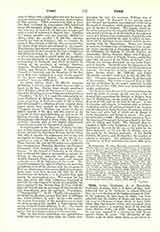

Tyrie, James, theologian, b. at Drumkilbo, Perthshire, Scotland, 1543; d. at Rome, May 27, 1597. Educated first at St. Andrews, he joined Edmund Hay (q.v.) at the time of de Gouda’s mission in 1562. In his company he then went to Rome, was there admitted into the Society of Jesus, and was eventually sent to Clermont College, Paris, in June, 1567, where Hay had become rector; and remained there in various posts, e.g. professor, head of the Scottish Jesuit Mission (1585), till 1590. During this period he was once engaged in a controversy with Knox, against whom he wrote “The Refutation of ane Answer made be Schir Johne Knox to ane letter be James Tyrie” (Paris, 1573). Next year he discussed several points of religion with Andrew Melville privately in Paris. In 1585 he was summoned to Rome as the representative of France on the Committee of Six, who eventually drew up Father Acquaviva‘s first edition of the “Ratio studiorum”, printed in 1586. He was rector of Clermont College during the great siege of Paris (May to September, 1590). His anxieties and difficulties must then have been great, as he had over a hundred scholars as well as a large community to feed, and that at a time when men were perishing with hunger in the streets. After the Duke of Parma had revictualled the town (September), Tyrie was again sent to Rome, as French deputy for the congregation, which finally supported the government of Father Acquaviva.
On his return in December, Tyrie was sent to the University of Pont-a-Mousson, as professor of Scripture and head of the Scots College, and two years later, on the successive deaths of Fathers Edmund Hay and Paul Hoffwus, he was again called to Rome (May 22, 1592), where he became Assistant for Franceand Germany, and played his part in the important Sixth General Congregation of the Society of Jesus (1593). He also supported at Rome the vain endeavors in Scotland of the three Catholic Earls of Huntly, Erroll, and Angus to maintain themselves, with King James’s connivance, by force of arms against the Kirk (1594). The earls asked and obtained a subsidy from Clement VIII; and Father Tyrie’s advice and opinion were constantly taken by both the papal and the Scottish negotiators. He also took steps to restore the Scottish hospital at Rome, which eventually (1600) became the Scots College there. Rare as it was to keep on good terms with adversaries in those days, Tyrie won praise from such men as David Buchanan, both for his ability and for his courtesy. Part of his cursus is preserved in MS. at the Bibliotheque Nationale, Paris.
J. H. POLLEN

